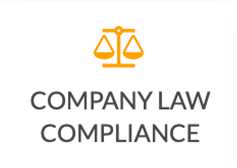Company Law Compliance
The Companies Act 2014 has had a profound impact on the architecture of company law in Ireland, with new company law compliance obligations – and opportunities – for accountants and their clients. At the same time, the CRO is taking a more serious view of late-filing and non-filing of annual returns, with the commencement of criminal proceedings.
In the face of these changes, we can help your clients get and keep their affairs in order, ensure they are compliant with company law and highlight any beneficial possibilities.
Company Restorations
Since the economic collapse of 2008, thousands of Irish companies have fallen foul of involuntary strike off, most commonly due to non-compliance with statutory filing requirements and needed company restorations.
For business owners, the consequences of an involuntarily strike-off can be significant. From the date of strike-off, the company ceases to exist as a legal entity, and the protection of limited liability is lost. Therefore, if the business continues trading, the owners are trading in their personal capacity.
Furthermore, the assets of the dissolved company become the property of the State and are held in trust for a period of 20 years. If the company is restored within this 20-year period, the property reverts to the company. However, after this period, ownership transfers in full to the state.
How We Can Help With a Company Restoration
The general improvement in economic conditions – and particularly rising property values – is increasingly motivating directors to seek to restore dissolved companies that still hold value.

The additional motivation for restoring a company that is still trading is to return its operating status to that of a legal entity, with all the benefits of being an Irish registered company, including limited liability. Any assets vested with the Minister of Finance on the company’s dissolution will be returned, and anything done in the name of the company while it was not on the register will be treated as if the company had been on the register.

If the directors seek to restore the company within 12 months, then they can avail of an administrative restoration (Note: If the Company is a Company Limited by Guarantee then it is within 6 years). However, if the company is dissolved for more than a year (or 6 years for a Company Limited by Guarantee), the directors must apply to the High Court for restoration. In either case, OmniPro can look after the process on behalf of your client. In the case of the more complex High-Court restoration, we will also engage and instruct our specialist legal partner on your behalf.
Administrative Restoration
The Administrative Restoration process requires the completion and submission of a H1 form along with all outstanding returns to the CRO within 12 months of the strike off. The submission must include all late filing fees up to a maximum of €3,600. All the financial statements filed as part of this return must be audited, and must be filed within 15 months of strike off. Note: A Company Limited by Guarantee that is struck off for a period greater than 1 year but less than 6 years, can arrange for an administrative restoration. They must file a H1-OMC among other items.
High-Court Restoration
A ‘standard’ High-Court restoration process has a number of requirements and steps, as detailed below. The company must be represented by a barrister, and the barrister, in turn, must be instructed by a practicing solicitor. The most common pitfall that companies encounter is not having their returns filed with Revenue; it is crucial that these returns are filed and up to date.
- A letter of consent is required from the Chief State Solicitor, the CRO and the Revenue Commissioners.
- Under normal circumstances all returns need to be filed with the CRO and Revenue before a ‘Letter of No Objection’ can be obtained. Circumstances may arise whereby the CRO and Revenue will consent to the restoration on the basis that all outstanding returns will be filed within a prescribed time limit – but these are exceptional circumstances and will ultimately be at the discretion of the judge.
- The company must prepare and have audited financial statements for all years up to the proposed date of restoration, and these should be filed with CRO along with any late-filing fees (up to a maximum of &3,600 in total).
- An affidavit must be drafted, setting out various details of the company, including its activities, how it came to be dissolved and the why the directors request that it be restored.
- The affidavit, along with the various exhibits, must be presented to the judge in court, and the judge ultimately has discretion as to whether the company can be restored or not.
- If the application is successful, the order is granted and, once perfected, it is lodged with CRO, thus restoring the company.




